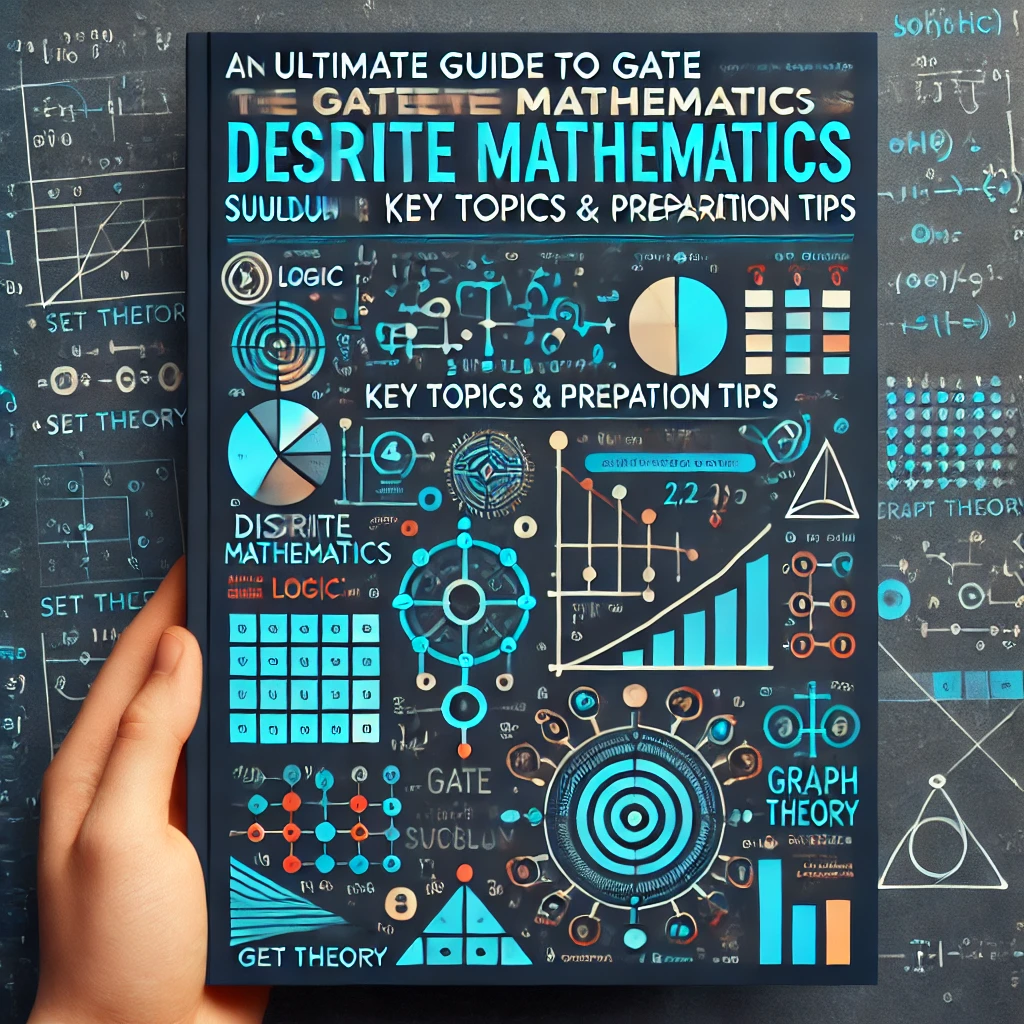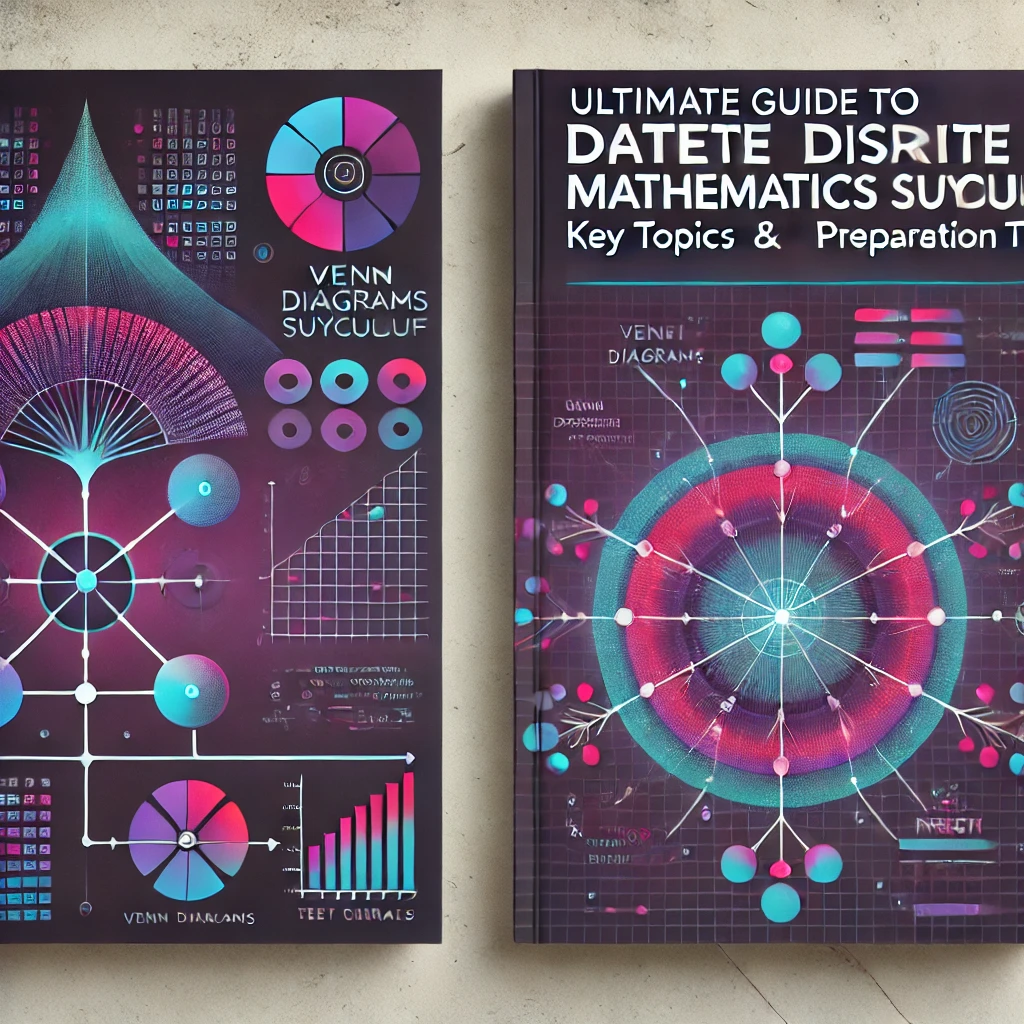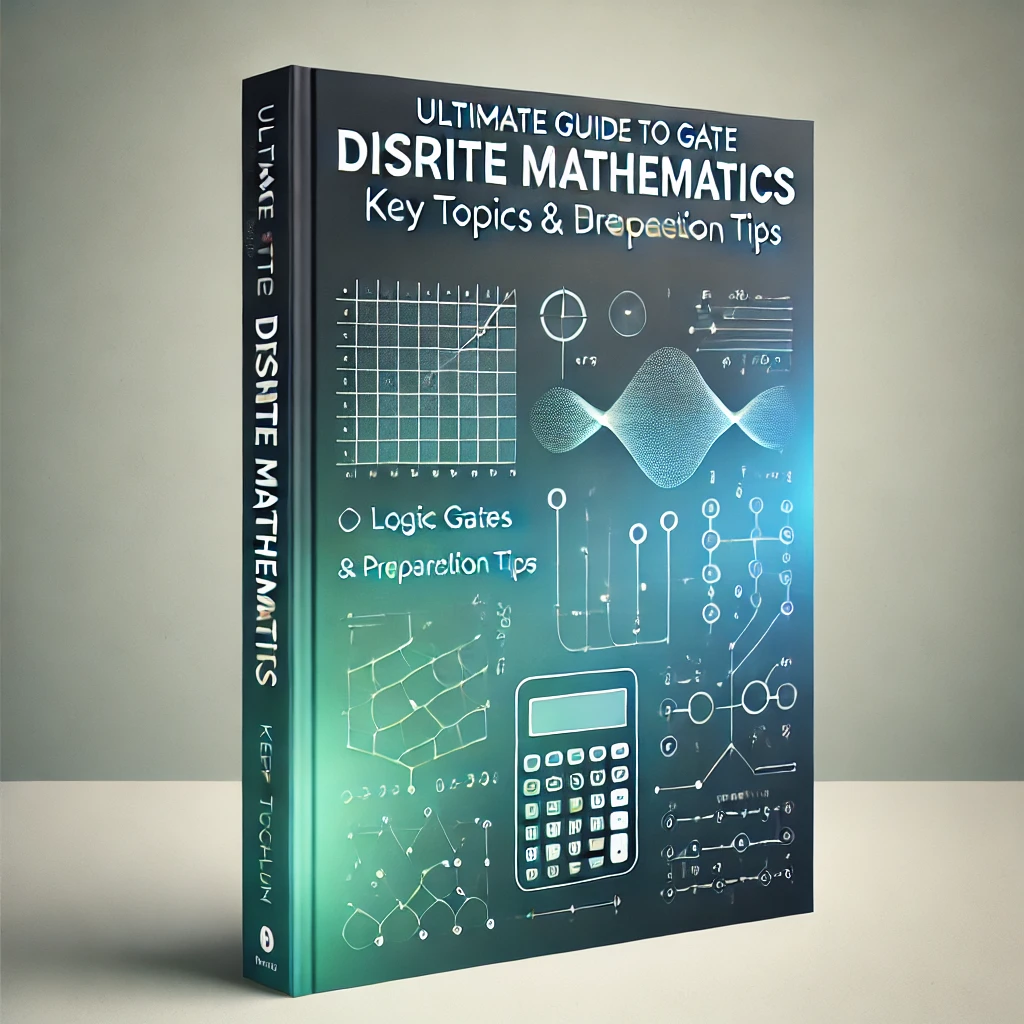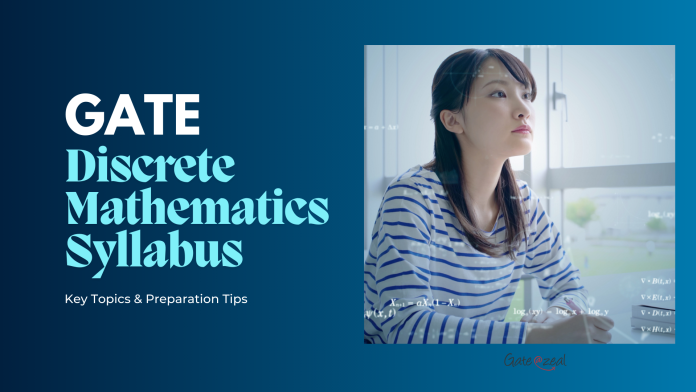Understanding the GATE Discrete Mathematics Syllabus
The GATE Discrete Mathematics syllabus plays a crucial role in the preparation of GATE Computer Science (CS) and Information Technology (IT) aspirants. This subject forms the backbone of computer science, covering fundamental concepts that are applicable in algorithms, data structures, theory of computation, and more.
In this guide, we will walk through the detailed syllabus, highlighting important topics, preparation tips, and common pitfalls to avoid.
Why Discrete Mathematics is Important for GATE
Discrete Mathematics is not just another topic in the GATE CS syllabus; it’s a core subject that influences various other sections like algorithms and computer networks. Understanding its key concepts will give you an edge in solving complex problems, especially those related to graph theory, logic, and combinatorics.
Detailed GATE Discrete Mathematics Syllabus Overview
Let’s dive into the main topics covered in the GATE Discrete Mathematics syllabus:
1. Set Theory
Set theory is the foundation of discrete mathematics. It includes:
- Sets and subsets
- Union, intersection, and complement
- Venn diagrams
- Cartesian products
- Power sets
Understanding set operations is crucial as they are used in database queries, algorithms, and other GATE problems.
Also Read: Best Coaching for GATE CS: Top Strategies to Ace Your Exam in 2024

2. Relations and Functions
Relations and functions form the core of discrete mathematics and have direct applications in computer science:
- Types of relations: reflexive, symmetric, transitive, and equivalence relations
- Properties of functions: injective, surjective, and bijective
- Composition of functions
- Inverse relations
3. Propositional Logic and Predicate Logic
Logic is an essential part of the GATE Discrete Mathematics syllabus:
- Logical connectives: AND, OR, NOT, IMPLIES
- Truth tables
- Logical equivalence
- Quantifiers: universal and existential
- Normal forms: CNF and DNF
This section is highly scoring if you have a solid understanding of logical reasoning.
4. Graph Theory
Graph theory is a critical component of discrete mathematics, frequently tested in GATE exams:
- Graph representation: adjacency matrix and list
- Types of graphs: simple, directed, undirected, weighted
- Graph traversal algorithms: BFS and DFS
- Eulerian and Hamiltonian paths
- Graph coloring and planar graphs
Mastering graph theory can help in solving complex algorithmic problems efficiently.
5. Combinatorics
Combinatorics involves counting techniques that are fundamental to probability and algorithm analysis:
- Permutations and combinations
- Pigeonhole principle
- Binomial theorem
- Inclusion-exclusion principle
This section tests your ability to solve problems involving counting and arrangement.
Also Read: Top Coaching Institutes for GATE CS: Your Path to Success

6. Algebraic Structures
This topic delves into mathematical structures used in theoretical computer science:
- Groups, rings, and fields
- Semi-groups and monoids
- Applications of algebraic structures in cryptography and coding theory
Understanding the properties of algebraic structures can give you a deeper insight into data encryption and error detection methods.
7. Recurrence Relations and Generating Functions
Recurrence relations are equations that define sequences recursively:
- Linear recurrence relations
- Homogeneous and non-homogeneous relations
- Solving recurrence relations using generating functions
These concepts are crucial for analyzing the time complexity of recursive algorithms.
Effective Tips for Preparing GATE Discrete Mathematics Syllabus
To master the GATE Discrete Mathematics syllabus, consider the following tips:
- Build Strong Fundamentals: Start with the basics of set theory and logic. These topics form the basis for more advanced sections like graph theory and combinatorics.
- Practice Regularly: The more problems you solve, the better you will understand the nuances of each topic. Focus on previous year GATE questions for practice.
- Use Standard Reference Books: Recommended books include “Discrete Mathematics and Its Applications” by Kenneth Rosen and “Discrete Mathematical Structures” by Kolman, Busby, and Ross.
- Focus on High-Scoring Topics: Graph theory and combinatorics are often high-scoring sections. Prioritize these during your preparation.
- Join Online Study Groups: Engage with peers in online forums or study groups to discuss challenging problems and share resources.
- Take Mock Tests: Regular mock tests will help you get accustomed to the GATE exam pattern and improve your time management skills.
Common Mistakes to Avoid in GATE Discrete Mathematics Preparation
While preparing for the GATE Discrete Mathematics syllabus, students often make these common errors:
- Ignoring Basic Concepts: Skipping foundational topics like set theory and logical reasoning can lead to confusion in advanced problems.
- Overlooking Graph Theory: Many students neglect graph theory, assuming it’s too complex. However, it is a high-weightage topic in GATE exams.
- Lack of Practice: Merely reading through theory without solving problems is a recipe for failure. Practice is key to success in discrete mathematics.
- Not Revising Regularly: Without regular revision, it’s easy to forget concepts and formulas. Schedule periodic revisions in your study plan.
Also Read: Online GATE CS Coaching: Your Ultimate Guide to Cracking the GATE Exam from Home

Recommended Books for GATE Discrete Mathematics Syllabus
Here are some of the best books to help you cover the GATE Discrete Mathematics syllabus thoroughly:
- “Discrete Mathematics and Its Applications” by Kenneth Rosen
- “Discrete Mathematical Structures” by Kolman, Busby, and Ross
- “Discrete Mathematics for Computer Science” by David Liben-Nowell
These books provide comprehensive coverage of the syllabus with plenty of practice problems.
FAQs
What is the weightage of Discrete Mathematics in GATE?
The weightage of discrete mathematics in GATE CS is typically around 10-15%, making it a significant section of the exam.
How can I effectively study for the GATE Discrete Mathematics syllabus?
Focus on building a strong foundation in set theory, logic, and graph theory. Practice solving previous year questions and take mock tests regularly.
Is graph theory included in the GATE Discrete Mathematics syllabus?
Yes, graph theory is an integral part of the GATE Discrete Mathematics syllabus and often features prominently in the exam.
What are the best books for GATE Discrete Mathematics preparation?
Some of the top books include “Discrete Mathematics and Its Applications” by Kenneth Rosen and “Discrete Mathematical Structures” by Kolman, Busby, and Ross.
Are recurrence relations important for the GATE exam?
Yes, recurrence relations are crucial for analyzing the time complexity of recursive algorithms, which is a key part of the GATE syllabus.
How much time should I dedicate to studying the GATE Discrete Mathematics syllabus?
It is recommended to spend at least 2-3 hours daily on discrete mathematics, focusing on problem-solving and revising key concepts regularly.
Conclusion
The GATE Discrete Mathematics syllabus is vast but manageable with a strategic approach. By understanding the core topics, practicing consistently, and using the right resources, you can master this subject and score well in the GATE exam.
Happy Studying and Good Luck with GATE Preparation! 🎓🚀








